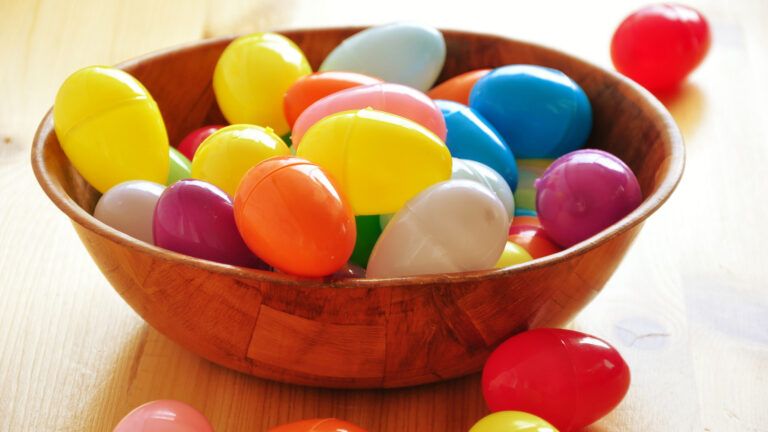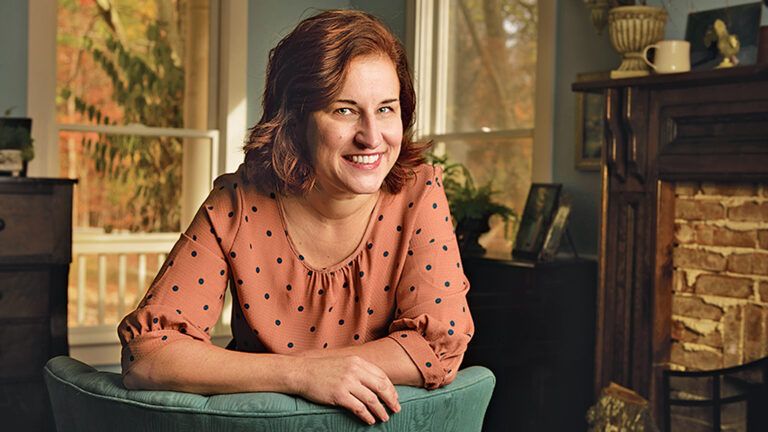They fled Egypt, grabbing unbaked loaves from their ovens.
As they raced through the desert, the searing sun baked the bread into flat, unleavened cakes. Only when they were safe from the Pharaoh, on the other side of a sea that miraculously parted for them, did the Jews finally have time to celebrate their freedom from slavery, eating the hard crackers we call “matzo.”
On Passover, my family gathers around the dining room table at my parents’ house and reads about that first, modest Seder, just part of the amazing story of the Exodus.
It’s one of the last sections of Scripture we read before our own meal is served…a meal much, much better than the one enjoyed by our ancestors. I have my mom to thank for that.
We eat matzo and other traditional foods to remind us of the difficult life our ancestors endured, but Mom’s cooking also summons memories from not so long ago.
“THE FESTIVE MEAL.” In all capital letters. That’s how it appears in my family’s Hagaddahs, the prayer books that recount the Passover story and contain the holiday blessings.
Our Hagaddahs were published by our Rabbi years ago to help simplify the Passover Seder. Each food on the Seder plate is explained–a green vegetable to symbolize rebirth and renewal, a bitter herb to remind us of the harshness of slavery.
But to some, it wasn’t simple enough. “Can’t we just skip to the meal?” my uncle Mike often joked. I laughed, but I understood. The delicious smells of my mom’s cooking made it hard to wait.
Smudges of sauce, drops of wine blotted onto the pages and crumbs of matzo nestled into the spine of each Hagaddah showed that no one waited until the books were put away to start digging in.
I first learned that Passover food was different when my favorite snack cakes went missing from the cupboard. “This house can’t have any chametz,” Mom explained. Chametz meant breads, cakes, anything that was leavened or contained ingredients used to make bread, like corn.
“Our ancestors didn’t have that, so for Passover we don’t either.” Mom even had my sister, Brooke, and me search the house for stray crumbs.
There was still plenty we could eat. The Passover meal was Mom’s masterpiece. Bowls of pickles, chopped liver and gefilte fish adorned the table. She served her matzo ball soup. Cabbage stuffed with sweet and sour meatballs. And the staple of our Passover dinner–Mom’s brisket.
At one of my first festive meals, Grandma Rita asked if I wanted some. “Biscuits?” I said. Wasn’t that chametz?
“Brisket,” my grandma corrected me. I cut off a tiny bite and chewed it slowly. The meat was spicy, smoky, with a hint of sweetness. The diced onions melted in my mouth. I was hooked.
I wasn’t the only one. My cousin Jeff emptied his plate three times, drawing concerned stares from my health-conscious aunt. It was Grandma Rita’s recipe, but she didn’t mind that my sister and I called it Mom’s brisket.
Over the years, the people at our table changed. My grandparents passed away. We were joined by friends, both Jews and non-Jews. But Mom’s food stayed the same. We wouldn’t have it any other way.
Not long ago Mom suggested we use new Hagaddahs. My sister and I objected. “Look at these,” Mom said. “You can tell what we had for dinner the past ten years.”
“But that’s why we like them,” Brooke said.
It was true. In those books was evidence of years of Grandma Rita’s brisket. Warped pages where Grandpa Sam had dripped brine from the pickle bowl. Tan spots that could have only been from chopped liver that had slipped off a piece of matzo Papa Morey had overloaded.
Somehow, the stains felt appropriate. The pages of the Hagaddahs recalled times God revealed his presence to our ancestors. Now the stains of holiday meals reminded us of more recent blessings–being able to share a good meal with the people we love.
After all, it’s not just the food on the Seder plate that has meaning.
Mom’s festive meal is a miracle in itself–bringing our family together to celebrate the freedom and joy God has brought to all of us.





